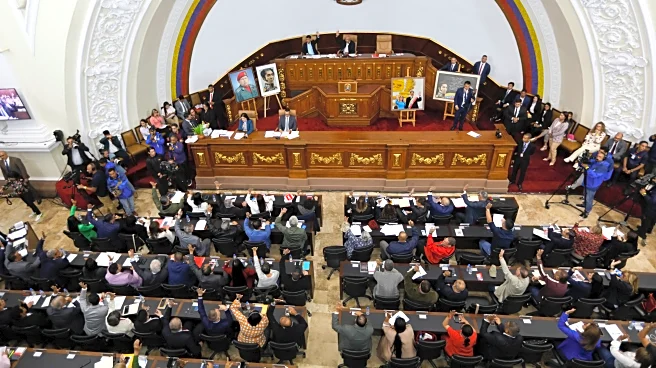What's Happening?
President Trump has accused Federal Reserve Governor Lisa Cook of mortgage fraud, a claim that experts suggest may be difficult to substantiate. The accusation centers around Cook allegedly misrepresenting her owner-occupancy status to secure favorable mortgage terms. This type of fraud involves claiming a property as a primary residence to benefit from lower interest rates and insurance costs, which are typically higher for investment properties. According to a report from the Federal Reserve Bank of Philadelphia, such misrepresentation is not uncommon, with over 22,000 borrowers found to have misrepresented their status between 2005 and 2017. However, proving intent to deceive in court is challenging, as it requires evidence of deliberate fraud rather than a simple mistake.
Why It's Important?
The accusation against Lisa Cook has significant implications for the Federal Reserve and its governance. If proven, it could lead to her removal, affecting the composition and decision-making of the Fed's Board of Governors. This situation also highlights the broader issue of mortgage fraud, which can impact financial institutions and the housing market. The difficulty in proving such fraud underscores the challenges in maintaining integrity within financial systems. Additionally, the political dimension of the accusation, given Cook's position and the involvement of President Trump, could influence public perception and trust in the Federal Reserve.
What's Next?
Lisa Cook's future at the Federal Reserve may hinge on the outcome of legal proceedings or further investigations into the allegations. If the accusations are pursued, it could lead to a court case where the burden of proof will be critical. The Federal Reserve may also face pressure to review its processes for vetting and monitoring its governors. Political reactions are likely, with stakeholders from various sectors potentially weighing in on the implications for economic policy and governance.











